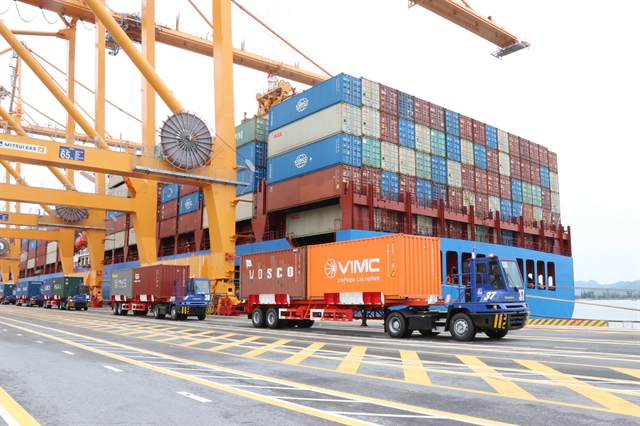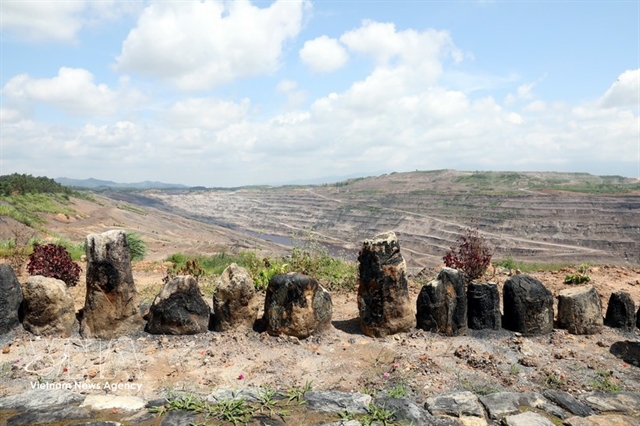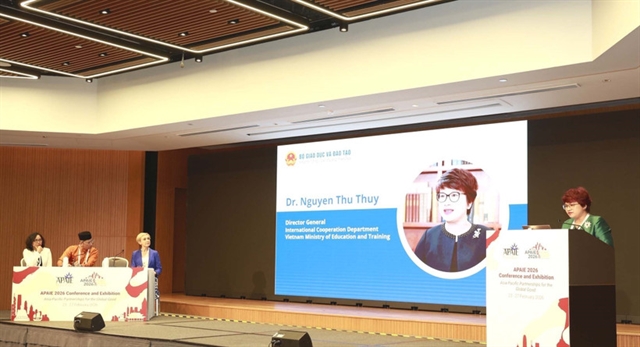 Society
Society
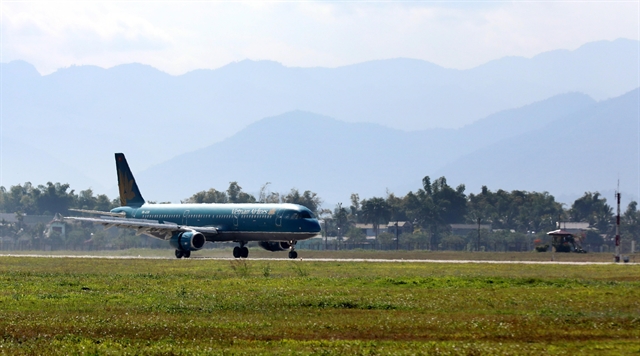
Over the next five years, the Asian Development Bank will support investment and policy reforms in Viet Nam that promote more inclusive and environmentally sustainable economic growth.
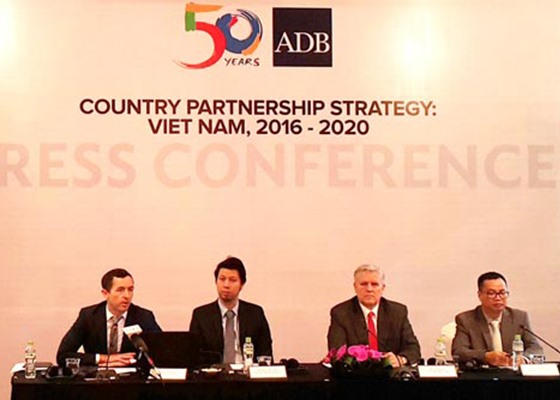 |
| Over the next five years, the Asian Development Bank will support investment and policy reforms in Viet Nam that promote more inclusive and environmentally sustainable economic growth. — Photo VGP |
HÀ NỘI — Over the next five years, the Asian Development Bank will support investment and policy reforms in Viet Nam that promote more inclusive and environmentally sustainable economic growth.
This will be the main thrust of the bank’s new country partnership strategy (CPS) for 2016-2020 period, it said at a conference in Hà Nội yesterday.
“As the Vietnamese government prepares its socio-economic development plan from 2016 to 2020, the ADB has also been preparing a new country partnership strategy to support the implementation of this plan,” said Eric Sidgwick, ADB Country Director for Việt Nam.
Under this plan, the ADB will support investments that achieve three key outcomes: promotion of job creation and competitiveness; increased inclusiveness of infrastructure and service delivery; improved environmental sustainability and stronger climate change responses.
The CPS will also strive to keep ADB lending at around US$1 billion per year, while continuing to provide direct annual technical assistance and grants worth $5 to 7 million in the next five-year period to help the government prepare quality projects that are efficiently implemented.
The CPS 2016-2020 was prepared against a backdrop of Việt Nam’s impressive economic and social gains, the bank said in a press releasse.
It noted that after reaching lower-middle income status in 2010, Việt Nam had made rapid progress toward reducing poverty and raising health and education quality.
“The economic and social development of Việt Nam is ongoing but it has been so far a successful experience. The [Vietnamese] economy is very dependent on the outside world, and in preparing our country partnership strategy, we wanted to take these factors into account,” Sidgwick said.
“We not only look backward at how successful Việt Nam has been, but we also look forward to see what issues the country will need to address to sustain its progress. We look for ways ADB can support this development.”
He said Việt Nam was approaching a relatively high level of public debt, close to the cap of 65 per cent of Gross Domestic Product (GDP). There was increasing concern about the level of public debt, Sidgwick stressed.
As Việt Nam continues to integrate more deeply into the global economy, more jobs will be created but the shift will also pose a number of challenges, according to ADB Country economist Aaron Batten.
Key challenges include low productivity and inefficient resource allocation, unequal access to quality infrastructure and social services, and unsustainable resource utilisation and climate change.
Batten said that the ADB would allocate resources to support governmental structural reform.
The CPS says Việt Nam’s transition from lower-middle income status to middle-income status “requires improvements in the efficiency of public expenditure and greater private sector investment.”
It says ADB will promote both, and help leverage private sector investment through public-private partnerships towards improving service delivery efficiency and gaining access to new expertise and technology.
The ADB’s CPS 2016-2020 was built based on a study of practical development challenges that Việt Nam might face.
Batten said “the most significant difference” from the previous CPS was the focus on improving environmental sustainability and climate change responses.
He said the ADB could help Việt Nam build climate resilience into its economic planning, sectoral policies, and infrastructure investments to reduce the most severe risks posed by climate change.
For this, the bank would target initiatives that support climate change mitigation and adaptation, as well as enhancing disaster risk preparedness.
It would also mobilise support from global climate funds and co-finance from development partners and climate funds with $1.4 billion in pipeline, he said.
Over the last five years, the ADB has provided approximately $5.3 billion in loans and $240 million in grants and technical assistance to Việt Nam. The focus has been primarily on transport, water, urban energy and public sector management.
This December, the ADB will mark 50 years of development partnership in the Asia-Pacific region and 20 years of partnership with Việt Nam. — VNS

